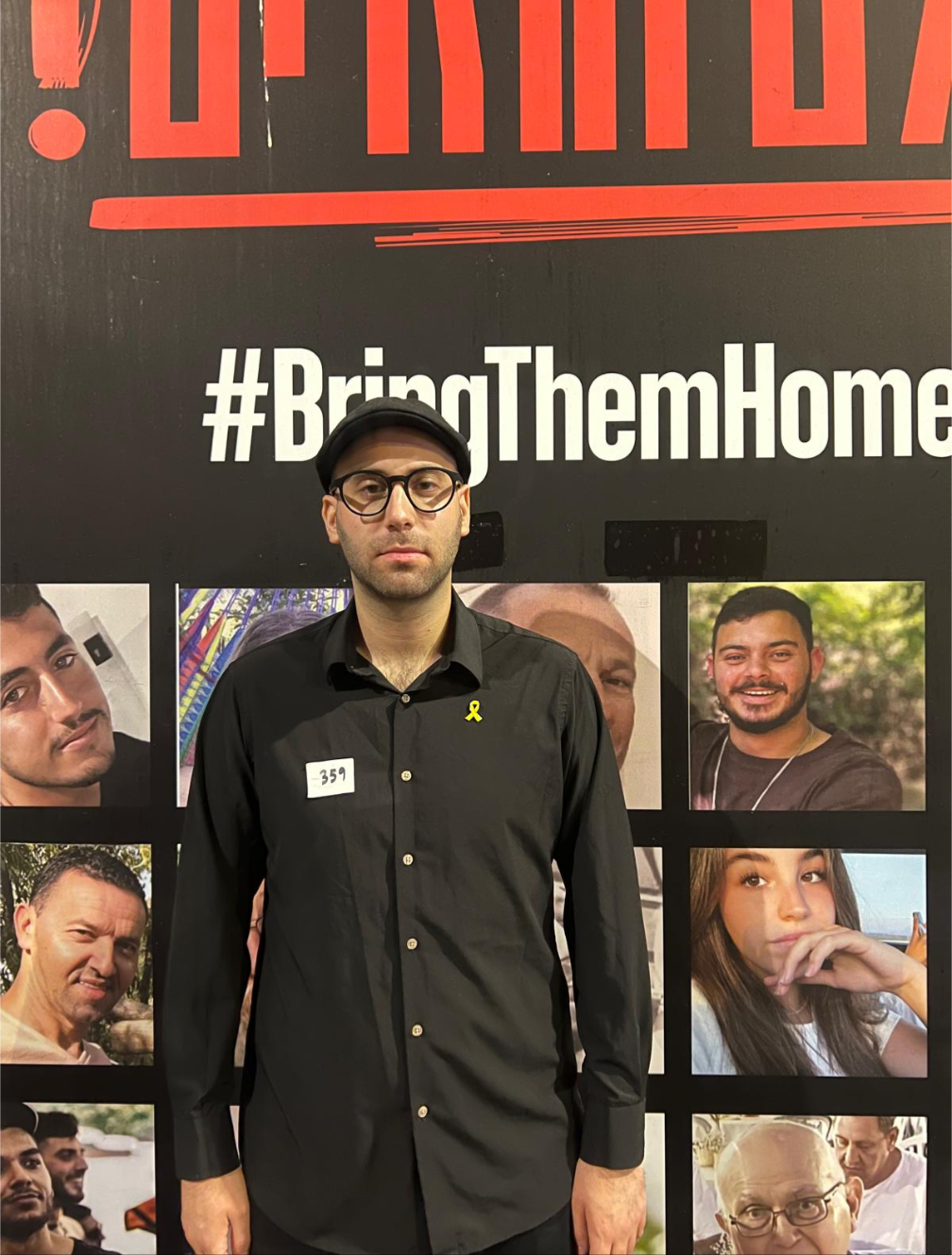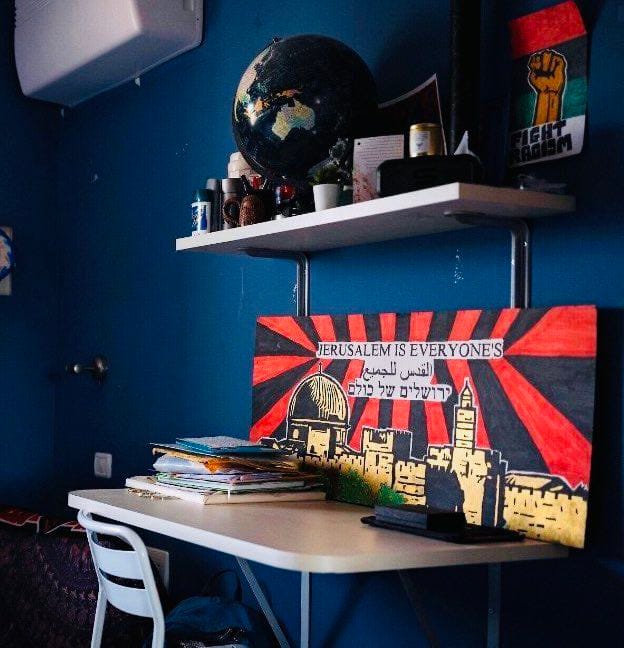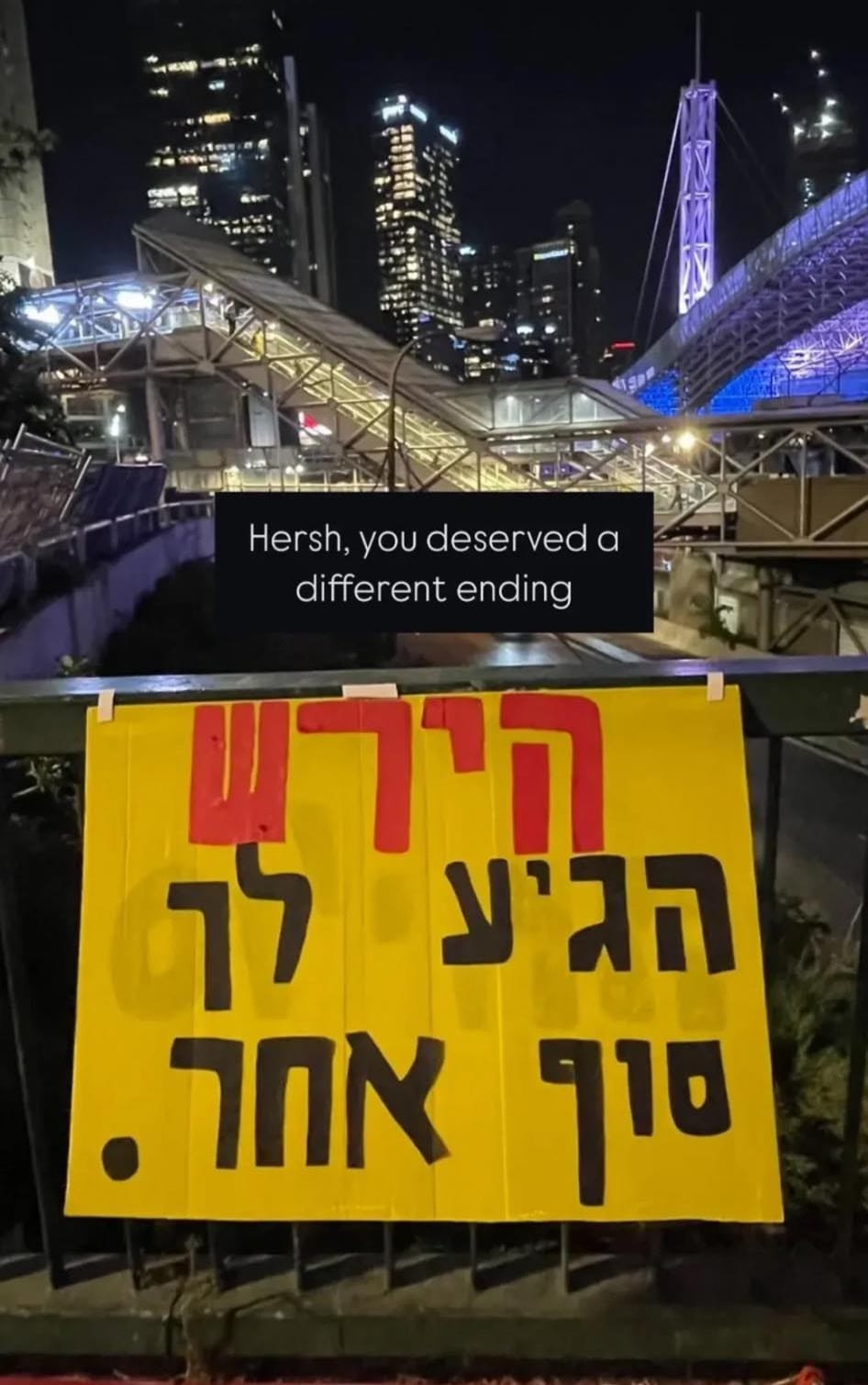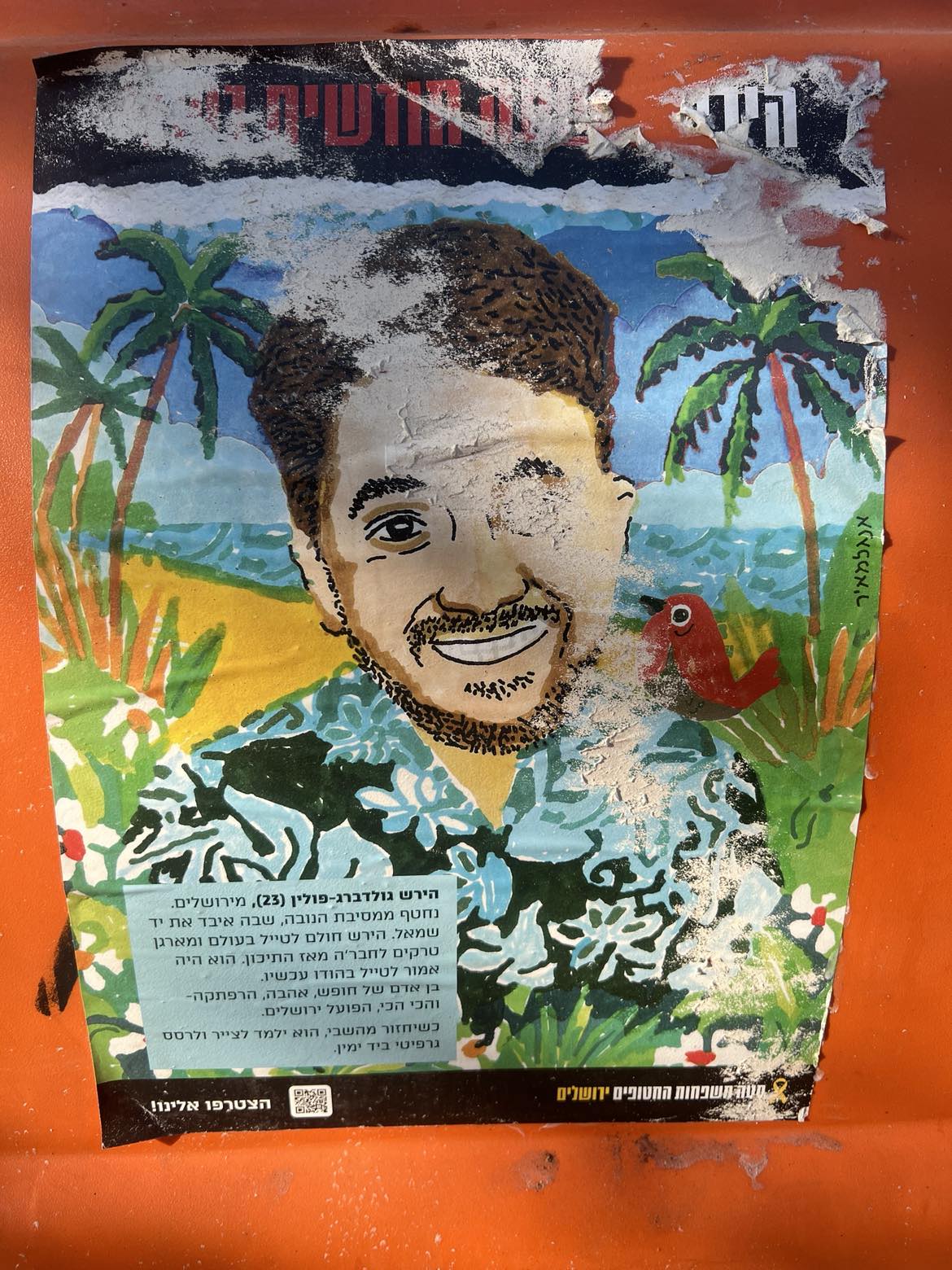Three weeks ago, I attended the Shiva of Hersh Goldberg-Polin, a young Jewish man we have all come to be so familiar with. But who was Hersh beyond the media buzz?
Hersh has come to symbolize many things. Hersh is a symbol of the hostages — of both the psychological harm (seeing his best friend Oner die) and the physical harm (his arm being blown off by a grenade) committed by Hamas during the October 7 Attacks.
While Hersh symbolized the trauma, fear and grief of the hostage families, he also symbolized the hope of a peaceful return of the hostages and an end to the bloodshed in Gaza. Even his mother Rachel Goldberg-Polin came to symbolize the everlasting strong, resilient mournful Jewish mother of our history. All of this heightens the tragedy of his death.
We, the Israeli people, were fortunate to become acquainted with the person that Hersh was (although under terrible circumstances), his status as an American Oleh from the Midwest (a status he and I share), and his position as a seemingly perfect son of every Jewish mother’s dreams.
The Goldberg-Polin’s family story as Olim — immigrants to Israel — from Chicago makes them more relatable to American Jews who often have difficulty relating to Israelis and what life is really like in this endlessly enigmatic nation. This made the pain of Hersh’s parents more accessible to American Jews who can see themselves in the Goldberg-Polin family.
Heartbreakingly, Hersh is also symbol of our collective failure as Diaspora Jews, Israelis and the Israeli government to negotiate a deal that would have saved Hersh’s life along with the five Israelis who were murdered that day, Carmel Gat z”l, Alexander Lobanov z”l, Almog Sarusi z”l, Eden Yerushalmi z”l, and Ori Danino z”l. They were all young people with futures. To all of them, I can only say that I am so, so sorry we could not save you. I am sorry that, collectively, we failed you.
However, Hersh did not have a say in any of this. He never volunteered to be a symbol in the fight to bring the hostages home — Hamas forcibly recruited him. Therefore, we must not see him as just a symbol, but first and foremost as a human being. Considering the brutality of Hamas, it is more comfortable to think of an anonymous victim, rather than a person with a name — an identity, a life and so much more — being continuously tortured in subhuman conditions. Symbolizing Hamas’ victims distracts us from the painful reality that we have fellow Jews (and Muslims, Christians, Hindus and Buddhists) in Gaza living as prisoners in deplorable conditions not knowing if they will be alive the next day.
Hersh was a young man, a Jewish American-Israeli who loved life. He loved to travel and dreamed of traveling the world. He loved music and was an amateur musician himself. He was a peace activist who volunteered in bringing Jews and Arabs together to play soccer. He was an activist who fought for the rights of African migrants. He was a very loyal fan of Hapoel Jerusalem FC. He was a devoted son, brother and grandson. This is the human we must remember, not the symbols which he became.
I first felt as if Hersh and I were kindred spirits when his mother Rachel Goldberg-Polin showed glimpses of his room to a journalist highlighting his banner which said in Hebrew, Arabic and English that “Jerusalem is Everyone’s.” Hersch was exactly the kind of person I have known and loved in America and Israel. Hersh is the friend I wish I had. Like Hersh, I have had a deep love of geography since I was young. I proudly won the National Geographical Bee at Hillel Day School when I was in 6th grade. And Like Hersh I love to travel and learn about different cultures for the sake of world peace.
We both also happen to be Olim from the Midwest, Hersh from Chicago and I from Detroit. I know that together we could have accomplished a lot in the field of Arab-Jewish solidarity. Hersh believed in peace and coexistence. He encapsulated the true ideal vision of the State of Israel: A Light Upon the Nations. Clearly, Hersh is still a light shining on the whole of the Jewish and non-Jewish world who has learned of his kindness, love of life, exuberance and optimism.
I wonder what Hersh’s life trajectory had looked like had he survived this whole ordeal. I hope he would have kept his commitment to peace and the values he built his life around. But I cannot even begin to fathom how horrible his situation was for nearly a year. If he came out of Gaza traumatized and disillusioned by the peace process, I would not have blamed him, because, like I said, first and foremost, Hersh was human. Hersh had hopes, dreams, beliefs and values.
Hersh is a life lost, but he can be a symbol for a better future. At his shiva, I told his father that my dream for coming to Israel was to be a part of the peace process, a dream I still have and one that Jon Polin told me to keep fighting for in the memory of his son Hersh Goldberg-Polin z”l.
Hersh, you were the best of us. I hope more people like you arise because we need more Hersh Goldberg-Polins in Israel and throughout the world to bring peace and love. I pray your legacy has a life of 120 years — the life you were robbed of — and beyond.
At the New York vigil for Hersh, they sang the classic Israeli song by Arik Einstein, Ani Ve’ata Neshane Et Ha’olam — “You and I Will Change the World.” His father proclaimed, “May your memory be a revolution!” Speaking at the Democratic National Convention, he emphasized the suffering of Israelis and Gazans alike:
"There is a surplus of agony on all sides of the tragic conflict of the Middle East. In a competition of pain there are no winners."
May we all join this revolution in Hersh’s memory to make the world a better place and one day B’Ezrat Hashem, with God’s help, bring peace to this ever volatile yet forever holy, Holy Land.




Comments
Sign in or become a Nu?Detroit member to join the conversation.
Just enter your email below to get a log in link.